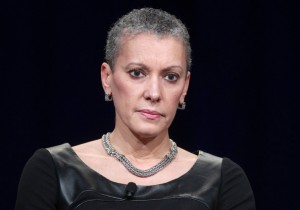 One of the most remarkable documentaries in Black History Month is the one that premiered tonight on PBS, “Slavery by Another Name,” which recounts the decades of forced labor that followed the Emancipation Proclamation due to a loophole in the 13th Amendment.
One of the most remarkable documentaries in Black History Month is the one that premiered tonight on PBS, “Slavery by Another Name,” which recounts the decades of forced labor that followed the Emancipation Proclamation due to a loophole in the 13th Amendment.
It was a brutal, little known chapter in history until it was brought out by Douglas Blackmon, who produced a Pulitzer Prize-winning book on the practice after first writing about it in the Wall Street Journal.
Much of the resulting film produced and directed by Sam Pollard, was based closely on the book and its stories. But one story popped up between the book and the movie – involving the wife of the current U.S. Attorney General Eric Holder.
Dr. Sharon Malone already had a connection to black history – it was her sister Vivian Malone who was one of the fist black students to integrate the University of Alabama in 1963. But her involvement in the film came after working with her daughter on a seven grade history project on ancestry.
“I said, ‘Wow, an ancestry project,’” she recalls. “I had no idea much beyond my parents. And my parents were very old — my father was born in 1893, and my mother was born in 1914. And I started it then and left it.”
Just about as far as one could go was the first census in Alabama in 1870, she says. Then she saw Blackmon speak at a conference her friend was throwing in Atlanta.
“I was just electrified,” Malone says. “It made me go back and sort of reexamine my roots.
“At the time that I heard Doug, I had no idea that I was going to be specifically tied to this. I was just researching as mere personal history and as a Southerner because, if I don’t know this history, I can’t imagine that anybody else does. And so that’s sort of how that started this process.
“And the more I looked, the more I found out. There were many things that I thought that were unknowable that really were knowable.”
She found that her uncle was a victim of the forced labor in the first part of the 20th century.
“In an unusual irony of history,”says executive producer Catherine Allan, she became wife of the attorney general Holder. “Though her uncle and so many people like him were virtually ignored by the Justice Department, she now has this very personal connection to that,” Allan says.
Her reaction, Malone says, “really wasn’t anger. As a matter of fact, I’m actually more grateful to my parents than I ever would have been. I had no idea what they had endured because they really did not pass that bitterness on to us.
“We’re first generation out from the things that happened in the South. And my parents in a way gave us a gift that we were unburdened by the things that they knew and the horrors that they had lived through.
They gave us hope,” Malone says. “They had faith in a system that at that time they may not have had any reason to have faith in. So, you know, I probably had more respect for my parents and for the generations before after I found this thing out than I already had previously.”
One thing forced labor did accomplish – other than build the new South cheaply for industrialists – was help fuel
the mass migration out of the South, Malone says.
“As a consequence of the conditions that existed then, this is what really made people want to flee. And make no mistake about it. Yes, it wasn’t just like sitting down, having a conversation about, ‘Oh, I think there’s a better job in Chicago.’ Many of these people fled in the dark of night and under and they were fleeing these circumstances that are written about in the book.”
Pollard, too, says he wasn’t angered by what he learned.
“It’s a complicated history,” the director says “There were some horrific things done to black people after the Civil War, you know, but there were some things that came out of it that gave us someone like Sharon Malone. So I think that’s what makes this such a rich history and makes it so complicated.”